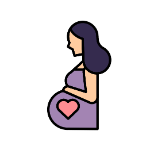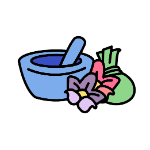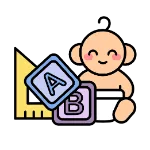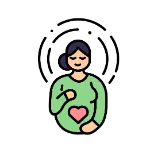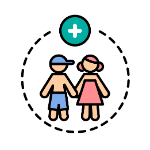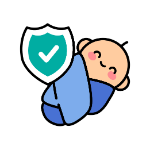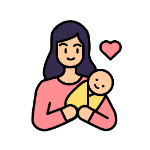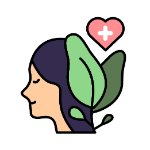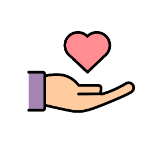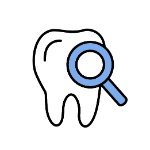
Childcare And Wellness
How Can I Help My Baby With A Cold?
7 min | Updated on 11-02-2022 by HappyPreggie
Every baby is born with some level of immunity to sickness. Even so, their immune systems require time to completely mature. As a result, newborns are more susceptible to viral illnesses, such as colds. One of the most heartbreaking milestones your kid will experience in their first year is their first cold. During feedings, your child may pant, snort themselves awake during sleep, or look at you, puzzled, as if to say, "What's going on?"

(Image credits to Canva)
Colds can be caused by approximately 200 different viruses. Fortunately, the majority of colds your infant suffers will boost their immunity. But a child's first cold can be frightening for parents. Read the whole article to know how you can help your baby with a cold.
Colds usually begin with irritability and develop to a runny nose or congestion. Snot is normally clear at first, then turns into a thick yellow or green goop. Fever, cough, sneezing, and grumpiness are all symptoms of a cold. Reduced appetite, difficulty sleeping, and difficulties breastfeeding or bottle feeding are all common symptoms of cold in newborns.
Colds usually linger for one to two weeks. Warming up in the bullpen for a few days: fussiness, fever, and a clear runny nose. Around three days after getting a cold, the fever normally goes away, and your infant will have goopy yellow snot.

(Image credits to Canva)
Symptoms to look out for in your baby if he or she has a cold include:
A baby can catch up to eight colds in a year. The number is determined by how often the baby is exposed to other sick children or adults. Babies who attend daycare, for example, may catch the cold six to eight times a year, whereas those who do not have may catch a cold two or three a year.
Because newborns breathe via their nose for the first six months, congestion can be severe. Clearing mucus using a bulb syringe might make it simpler for them to breathe. If the conventional blue-bulb syringe is too large for your baby's nose, consider a smaller version marketed as an ear syringe.

(Image credits to Canva)
Squeeze the bulb to remove extra air, and then carefully push the syringe into your baby's nostril. Release the pressure and pull it out of their nose by tilting the tip down slightly so it's more perpendicular to their face. Using a tissue, squeeze the mucus. You'll be shocked at how much information you can extract.
Like adults, when newborns are sick, they don't feel like eating. But you should encourage your baby to breastfeed or take a bottle as often as possible. If they refuse to drink milk, talk to your doctor to make sure they don’t get dehydrated and whether you may give them an electrolyte solution. Feeding your infant upright can help relieve congestion and prevent mucous from flowing down their neck while they drink.

(Image credits to Canva)
Because babies lack the physical power to cough properly, clearing phlegm can be difficult. One natural cure that may assist is to take your baby into the bathroom and turn on the shower to create hot, steamy air. It will make his or her nose runny, loosen the mucus in the throat. As mucus tends to flow into your baby's throat and chest when they sleep, do it before bedtime.
When your baby is sick, they need extra sleep, but all those irritating symptoms can make a good night's sleep challenging. A soothing bedtime ritual, such as listening to music or having a bath together, might help your child go asleep faster.

(Image credits to Canva)
When newborns are unwell, it's understandable that they become needier. It's reasonable that they want to breastfeed on demand, that they want to be upright and in a carrier, and sometimes they just want to be angry. During this time keep them closer to you and give them some extra cuddles.
A cold can be cured by placing a cool-mist humidifier in your baby's room during naps and at night. As humidifiers wet the dry air, it helps to relieve coughing and congestion in your baby. To avoid mold, keep the humidifier out of your baby's reach and refill it with new water every day. Also, don't turn up the heat too high, since this might aggravate your baby's congestion.

(Image credits to Canva)
While colds usually go away on their own, unexpected symptoms in a newborn may need a visit to the physician. Parents should seek medical care if:
Colds in babies are painful to see, but with a few simple items and plenty of love, your baby will be happy and snot-free in no time! Although colds aren't life-threatening, but they can develop into more serious illnesses. If your baby has a cold and is under the age of two or three months, it's critical to see your physician, especially if they have a high temperature or other symptoms.
We hope our article on how can I help my baby with a cold was helpful for you. If you want to read more informative articles by HappyPreggie, here are our suggestions: How To Take Care Of Your Newborn's Umbilical Cord or you can also try reading A Day In The Life Of A Newborn.
(Image credits to Canva)
Colds can be caused by approximately 200 different viruses. Fortunately, the majority of colds your infant suffers will boost their immunity. But a child's first cold can be frightening for parents. Read the whole article to know how you can help your baby with a cold.
How To You Know If Your Baby Has a Cold?
Colds usually begin with irritability and develop to a runny nose or congestion. Snot is normally clear at first, then turns into a thick yellow or green goop. Fever, cough, sneezing, and grumpiness are all symptoms of a cold. Reduced appetite, difficulty sleeping, and difficulties breastfeeding or bottle feeding are all common symptoms of cold in newborns.
How Long Does a Baby's Cold Last?
Colds usually linger for one to two weeks. Warming up in the bullpen for a few days: fussiness, fever, and a clear runny nose. Around three days after getting a cold, the fever normally goes away, and your infant will have goopy yellow snot.
(Image credits to Canva)
Symptoms to look out for in your baby if he or she has a cold include:
- Stuffy or runny nose
- Cough
- Loss of appetite
- Fever above 100.4 °F
A baby can catch up to eight colds in a year. The number is determined by how often the baby is exposed to other sick children or adults. Babies who attend daycare, for example, may catch the cold six to eight times a year, whereas those who do not have may catch a cold two or three a year.
Home Remedies For a Cold in Babies
#1 Mucus Removal
Because newborns breathe via their nose for the first six months, congestion can be severe. Clearing mucus using a bulb syringe might make it simpler for them to breathe. If the conventional blue-bulb syringe is too large for your baby's nose, consider a smaller version marketed as an ear syringe.
(Image credits to Canva)
Squeeze the bulb to remove extra air, and then carefully push the syringe into your baby's nostril. Release the pressure and pull it out of their nose by tilting the tip down slightly so it's more perpendicular to their face. Using a tissue, squeeze the mucus. You'll be shocked at how much information you can extract.
#2 Maintain Your Baby's Hydration
Like adults, when newborns are sick, they don't feel like eating. But you should encourage your baby to breastfeed or take a bottle as often as possible. If they refuse to drink milk, talk to your doctor to make sure they don’t get dehydrated and whether you may give them an electrolyte solution. Feeding your infant upright can help relieve congestion and prevent mucous from flowing down their neck while they drink.
(Image credits to Canva)
#3 Loosen Phlegm With Steam
Because babies lack the physical power to cough properly, clearing phlegm can be difficult. One natural cure that may assist is to take your baby into the bathroom and turn on the shower to create hot, steamy air. It will make his or her nose runny, loosen the mucus in the throat. As mucus tends to flow into your baby's throat and chest when they sleep, do it before bedtime.
#4 Rest
When your baby is sick, they need extra sleep, but all those irritating symptoms can make a good night's sleep challenging. A soothing bedtime ritual, such as listening to music or having a bath together, might help your child go asleep faster.
(Image credits to Canva)
#5 Saline Spray
Saline is simply sterile salt water that does not hurt when inhaled. It helps to break up and remove any mucus in your baby's nasal passages. Saline sprays are more effective than drops because it got further up the nose.#6 Extra Hugs and Kisses
When newborns are unwell, it's understandable that they become needier. It's reasonable that they want to breastfeed on demand, that they want to be upright and in a carrier, and sometimes they just want to be angry. During this time keep them closer to you and give them some extra cuddles.
#7 Run a Humidifier
A cold can be cured by placing a cool-mist humidifier in your baby's room during naps and at night. As humidifiers wet the dry air, it helps to relieve coughing and congestion in your baby. To avoid mold, keep the humidifier out of your baby's reach and refill it with new water every day. Also, don't turn up the heat too high, since this might aggravate your baby's congestion.
(Image credits to Canva)
When Should You Take Your Kids To The Doctor For a Cold?
While colds usually go away on their own, unexpected symptoms in a newborn may need a visit to the physician. Parents should seek medical care if:
- A fever of more than 100.4 °F is evident in a newborn under the age of two months.
- The baby is older and has a temperature of more than 101 °F.
- If cough worsens after day 10.
- If the infant is vomiting, they are urinating less, which might lead to hazardous nutrient deficits.
Colds in babies are painful to see, but with a few simple items and plenty of love, your baby will be happy and snot-free in no time! Although colds aren't life-threatening, but they can develop into more serious illnesses. If your baby has a cold and is under the age of two or three months, it's critical to see your physician, especially if they have a high temperature or other symptoms.
We hope our article on how can I help my baby with a cold was helpful for you. If you want to read more informative articles by HappyPreggie, here are our suggestions: How To Take Care Of Your Newborn's Umbilical Cord or you can also try reading A Day In The Life Of A Newborn.
Join the largest support network for family health and well-being. Ready to get started?
Get started
